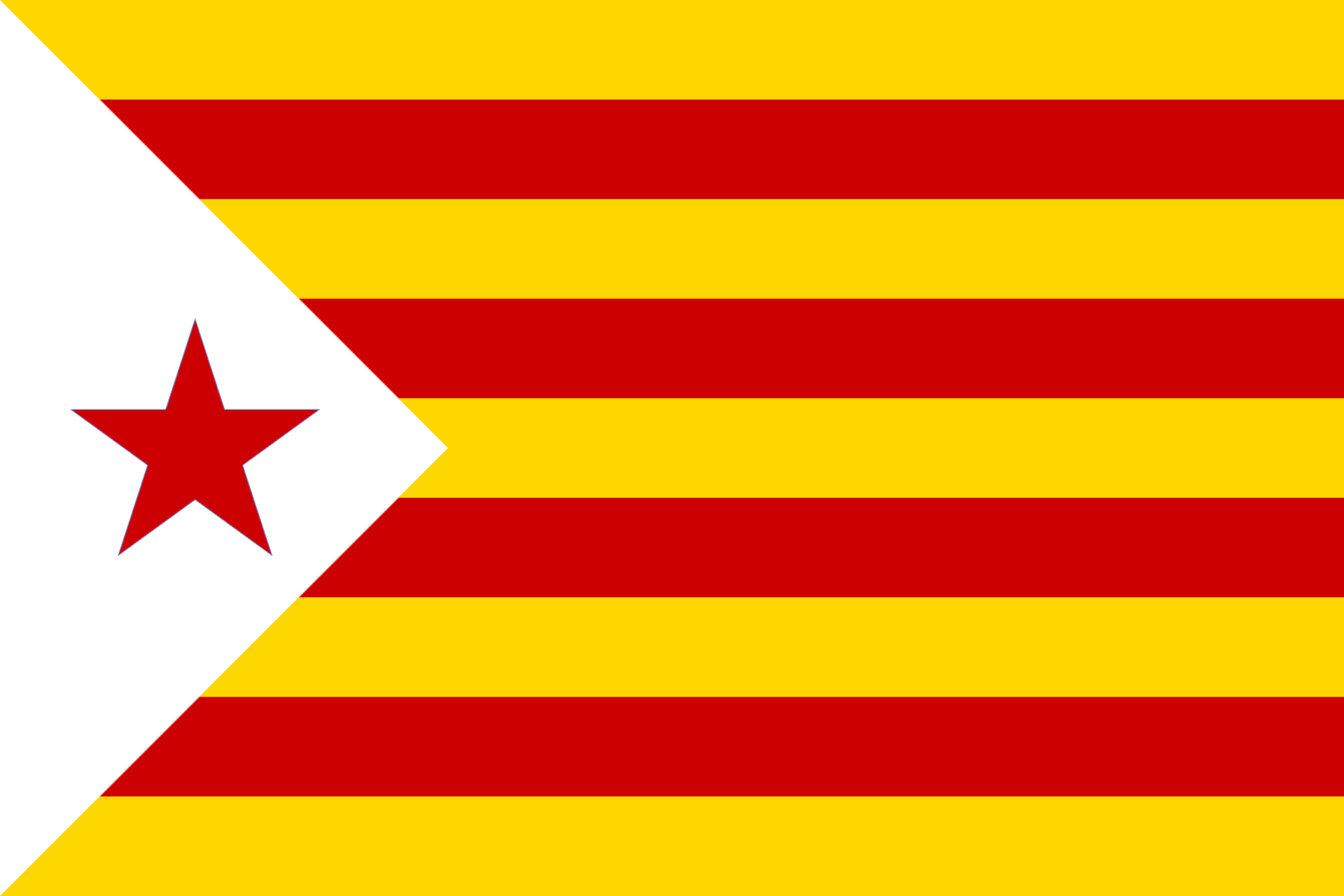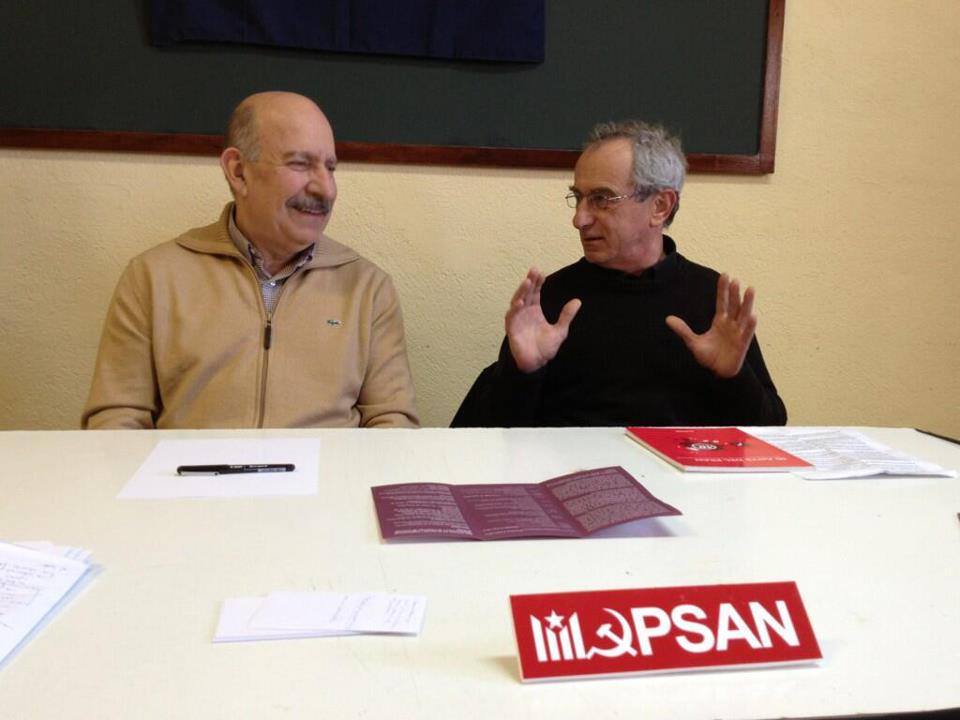|
Partit Socialista D'Alliberament Nacional
The Socialist Party of National Liberation (Catalan: ''Partit Socialista d'Alliberament Nacional'', PSAN) is an independentist and communist party active in Catalonia. The PSAN was created in 1968 following a split in the more leftist sector of the National Front of Catalonia. Initially it was only present the Catalonia, but later also gained presence in the french region of Roussillon (September 1971), the Valencian Community (July 1974) and the Balearic Islands (February 1976). The party was illegal and clandestine until 1978, when all parties were fully legalised, after the Franco Dictadorship. History Origins In March 1969 the Constituent Assembly of the party was celebrated. In this assembly the organization officially adopted a communist and independentist ideology. Joaquim Maurín, Jaume Vicens i Vives and the classical international marxist authors were the most important theoretical inspirations the party. The influence of the Third World revolutionary movements, ... [...More Info...] [...Related Items...] OR: [Wikipedia] [Google] [Baidu] |
Josep Guia
Josep Guia i Marín (; born 1947, in Valencia) is a Spanish writer, mathematics professor of University of Valencia The University of Valencia ( ca-valencia, Universitat de València ; also known as UV) is a public research university located in the city of Valencia, Spain. It is one of the oldest surviving universities in Spain, and the oldest in the Vale ... and political activist within PSAN party. In 1986, he was awarded by Fundació Jaume I. Some of his most relevant essays about Catalan nationalism are: ''Països Catalans i Llibertat'' ("Catalan Countries and Freedom) (1983), ''És molt senzill, digueu-li Catalunya'' ("It's very easy, call it Catalonia") (1985), ''Des de la Catalunya del Sud'' ("From Southern Catalonia") (1987), ''València, 750 anys de nació catalana'' (Valencia, 750 years of Catalan Nation) (1988)) and ''Catalunya descoberta'' ("Catalonia, discovered") (1990). He is an editor of ''Lluita'' magazine. External links Biographical information in C ... [...More Info...] [...Related Items...] OR: [Wikipedia] [Google] [Baidu] |
Jaume Vicens I Vives
Jaume Vicens Vives (6 June 1910 in Girona, Spain – 28 June 1960 in Lyon, France) was a Spanish historian, and is considered, along with Pierre Vilar, one of the top influential Catalan historians of the 20th century. According to Eliseo Climent Corberá, his 1954 book '' Notícia de Catalunya'' was a direct source and inspiration for Juan Fuster's influential 1962 book ''Nosaltres, els valencians''. That book was to have been originally titled ''Nosaltres els catalans'', but it was renamed under Josep Pla's advice, for fear of Francoist censorship Censorship in Francoist Spain was mandated by Francisco Franco in Francoist Spain, between 1936-1975. In Francoist Spain, primary subjects of censorship included public display of liberal political ideology, art forms such as literature and film, ....''De la revolución liberal a la democracia parlamentaria: Valencia (1808-1975)'', p.35. Fuster's work has the same structure and intention as Vicens' book does. The book was expan ... [...More Info...] [...Related Items...] OR: [Wikipedia] [Google] [Baidu] |
Working Class
The working class (or labouring class) comprises those engaged in manual-labour occupations or industrial work, who are remunerated via waged or salaried contracts. Working-class occupations (see also " Designation of workers by collar colour") include blue-collar jobs, and most pink-collar jobs. Members of the working class rely exclusively upon earnings from wage labour; thus, according to more inclusive definitions, the category can include almost all of the working population of industrialized economies, as well as those employed in the urban areas (cities, towns, villages) of non-industrialized economies or in the rural workforce. Definitions As with many terms describing social class, ''working class'' is defined and used in many different ways. The most general definition, used by many socialists, is that the working class includes all those who have nothing to sell but their labour. These people used to be referred to as the proletariat, but that term has gone out of ... [...More Info...] [...Related Items...] OR: [Wikipedia] [Google] [Baidu] |
Class Struggle
Class conflict, also referred to as class struggle and class warfare, is the political tension and economic antagonism that exists in society because of socio-economic competition among the social classes or between rich and poor. The forms of class conflict include direct violence such as wars for resources and cheap labor, assassinations or revolution; indirect violence such as deaths from poverty and starvation, illness and unsafe working conditions; and economic coercion such as the threat of unemployment or the withdrawal of investment capital (capital flight); or ideologically, by way of political literature. Additionally, political forms of class warfare include legal and illegal lobbying, and bribery of legislators. The social-class conflict can be direct, as in a dispute between labour and management such as an employer's industrial lockout of their employees in effort to weaken the bargaining power of the corresponding trade union; or indirect such as a workers' sl ... [...More Info...] [...Related Items...] OR: [Wikipedia] [Google] [Baidu] |
Catalan Countries
The Catalan Countries ( ca, països catalans, , ) refers to those territories where the Catalan language is spoken. They include the Spanish regions of Catalonia, the Balearic Islands, Valencian Community, Valencia, and parts of Aragon (''La Franja'') and Region of Murcia, Murcia (Carche), as well as the Andorra, Principality of Andorra, the department of Pyrénées-Orientales (aka Northern Catalonia, including Cerdanya, Cerdagne, Roussillon, and Vallespir) in France, and the city of Alghero in Sardinia (Italy). In the context of Catalan nationalism, the term is sometimes used in a more restricted way to refer to just Catalonia, Valencia and the Balearic Islands. The Catalan Countries do not correspond to any present or past political or administrative unit, though most of the area belonged to the Crown of Aragon in the Middle Ages. Parts of Valencia (Spanish) and Catalonia (Occitan language, Occitan) are not Catalan-speaking. The "Catalan Countries" have been at the centre of ... [...More Info...] [...Related Items...] OR: [Wikipedia] [Google] [Baidu] |
Spanish Police
Spanish might refer to: * Items from or related to Spain: **Spaniards are a nation and ethnic group indigenous to Spain **Spanish language, spoken in Spain and many Latin American countries **Spanish cuisine Other places * Spanish, Ontario, Canada * Spanish River (other), the name of several rivers * Spanish Town, Jamaica Other uses * John J. Spanish (1922–2019), American politician * "Spanish" (song), a single by Craig David, 2003 See also * * * Español (other) * Spain (other) * España (other) * Espanola (other) * Hispania, the Roman and Greek name for the Iberian Peninsula * Hispanic, the people, nations, and cultures that have a historical link to Spain * Hispanic (other) * Hispanism * Spain (other) * National and regional identity in Spain * Culture of Spain The culture of ''Spain'' is based on a variety of historical influences, primarily based on the culture of ancient Rome, Spain being a prominent ... [...More Info...] [...Related Items...] OR: [Wikipedia] [Google] [Baidu] |
Galician People's Union
The Galician People's Union ( gl, Unión do Povo Galego) is a Galician nationalist and communist political party, and is one of the registered political parties of Spain. The party publishes the magazine ''Terra e Tempo'', and the secretary general is Néstor Rego. It was founded in 1964 with the intention of the independence of Galicia and its transformation into a socialist state. It caused the creation of nationalist fronts such as the Galician National-Popular Assembly and the Bloque Nacionalista Galego. Since 1982 it is one of the parties in the coalition. The current National Spokesperson (Ana Pontón) of the BNG is a member of the UPG. History First foundation In November 1963, Xosé Luís Méndez Ferrín, Bautista Álvarez, Reimundo Patiño and Xosé Antonio Arjona, members of the literary group Brais Pinto, founded Unión do Pobo Galego as a communist and nationalist political party. Refoundation In 1964 the Youth Council, under the direction of Ramón Piñeiro, e ... [...More Info...] [...Related Items...] OR: [Wikipedia] [Google] [Baidu] |
Euskadi Ta Askatasuna
ETA, an acronym for Euskadi Ta Askatasuna ("Basque Homeland and Liberty"ETA BASQUE ORGANIZATION 20 October 2011 or "Basque Country and Freedom"), was an armed and far left organization in the Basque Country (in northern Spa ... [...More Info...] [...Related Items...] OR: [Wikipedia] [Google] [Baidu] |
Basque People
The Basques ( or ; eu, euskaldunak ; es, vascos ; french: basques ) are a Southwestern European ethnic group, characterised by the Basque language, a common culture and shared genetic ancestry to the ancient Vascones and Aquitanians. Basques are indigenous to, and primarily inhabit, an area traditionally known as the Basque Country ( eu, Euskal Herria) — a region that is located around the western end of the Pyrenees on the coast of the Bay of Biscay and straddles parts of north-central Spain and south-western France. Etymology The English word ''Basque'' may be pronounced or and derives from the French ''Basque'' (), itself derived from Gascon ''Basco'' (pronounced ), cognate with Spanish ''Vasco ''(pronounced ). Those, in turn, come from Latin ''Vascō'' (pronounced ; plural '' Vascōnes''—see history section below). The Latin generally evolved into the bilabials and in Gascon and Spanish, probably under the influence of Basque and the related Aquitani ... [...More Info...] [...Related Items...] OR: [Wikipedia] [Google] [Baidu] |
National Liberation Front (Algeria)
The National Liberation Front ( ar, جبهة التحرير الوطني ''Jabhatu l-Taḥrīri l-Waṭanī''; french: Front de libération nationale, FLN) is a nationalist political party in Algeria. It was the principal nationalist movement during the Algerian War and the sole legal and ruling political party of the Algerian state until other parties were legalised in 1989. The FLN was established in 1954 from a split in the Movement for the Triumph of Democratic Liberties from members of the Special Organisation paramilitary; its armed wing, the National Liberation Army, participated in the Algerian War from 1954 to 1962. After the Évian Accords of 1962, the party purged internal dissent and ruled Algeria as a one-party state. After the 1988 October Riots and the Algerian Civil War (1991–2002) against Islamist groups, the FLN was reelected to power in the 2002 Algerian legislative election, and has generally remained in power ever since, although sometimes needing to for ... [...More Info...] [...Related Items...] OR: [Wikipedia] [Google] [Baidu] |
Vietcong
, , war = the Vietnam War , image = FNL Flag.svg , caption = The flag of the Viet Cong, adopted in 1960, is a variation on the flag of North Vietnam. Sometimes the lower stripe was green. , active = 1954–1959 ''(as southern Viet Minh cadres)'' , ideology = , position = Far-left , leaders = Liberation Army: Central Office: Liberation Front:Burchett, Wilfred (1963):Liberation Front: Formation of the NLF, ''The Furtive War'', International Publishers, New York. Governance: , merged_into = Vietnamese Fatherland Front , clans = , headquarters = , area = Indochina, with a focus on South Vietnam , predecessor = Viet Minh , successor = Vietnam Fatherland Front , allies = , opponents = , battles = See full list The Viet Cong, ; contraction of (Vietnamese communist) was an armed communist organization in South Vietnam, ... [...More Info...] [...Related Items...] OR: [Wikipedia] [Google] [Baidu] |








